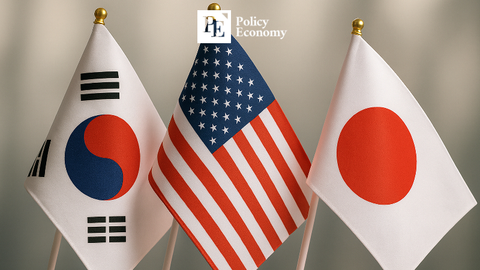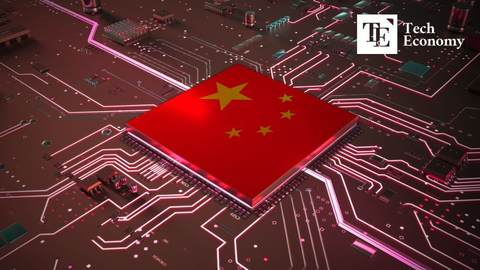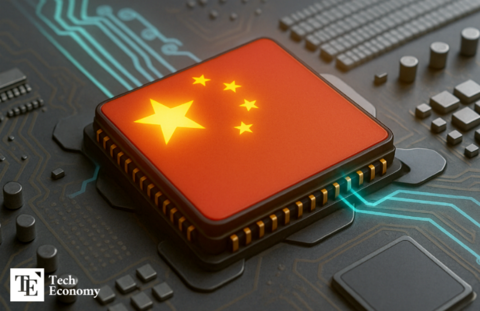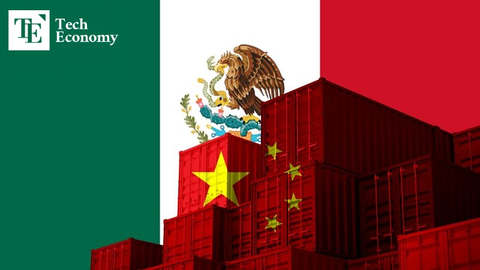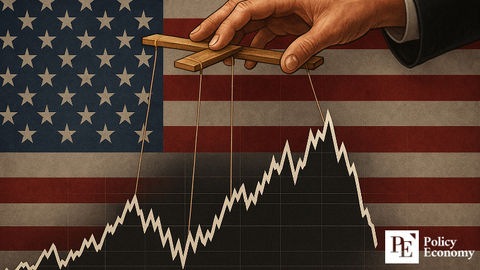Stunned European Leaders Strategize as Trump Bypasses EU in Ukraine Peace Talks
Input
Changed

European Leaders Stunned as Trump Bypasses EU in Ukraine Peace Talks
European leaders are reeling from the shocking revelation that U.S. President Donald Trump is moving forward with high-level discussions on Ukraine’s future—without them. They were long apprehensive that Ukraine would be marginalized in the negotiations; however, they never foresaw that Europe would also be excluded. The potential for Trump to engage in direct negotiations with Russian President Vladimir Putin, potentially without significant European involvement, has caused significant concern in diplomatic circles in Brussels, Paris, and London. European governments have maintained their central position in any peace process concerning Ukraine for months, as they have a direct interest in the conflict and provide economic and military support to Kyiv. Nevertheless, Trump's most recent action—inviting French President Emmanuel Macron and UK Prime Minister Keir Starmer for what is being characterized as "consultations"—has confirmed their most apprehensive fears: the White House may be preparing to establish its own course, with or without Europe.
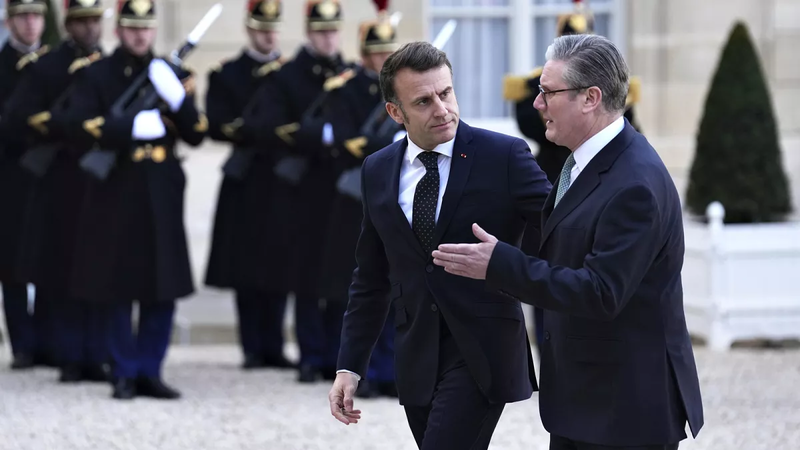
Europe's Attempt to Influence Trump
Macron and Starmer will have a meeting with Trump at the White House next week in order to preserve Europe's position at the negotiating table. The official statements indicate that their agenda will be to maintain a united front on Ukraine, secure commitments to NATO, and prevent a U.S.-Russia agreement that could undermine European security.
Macron is anticipated to advocate for a more robust EU presence in the peace process, while Starmer, who is still at the beginning of his tenure as Prime Minister of the United Kingdom, will endeavor to reaffirm Britain's traditional status as America's closest ally. Nevertheless, European diplomats are concerned that Trump has already determined to conduct peace negotiations in a manner that prioritizes American interests over transatlantic unity, despite the fact that this decision has been made behind closed doors.
Although Trump has positioned the meeting as part of a more comprehensive diplomatic initiative, European officials are apprehensive that the U.S. president is merely feigning consultation while simultaneously advancing his own agenda. The absence of Ukraine from these discussions at the outset serves to exacerbate concerns that any peace agreement that is ultimately reached may be imposed rather than negotiated collaboratively.
European leaders have scheduled an emergency summit to coordinate their next actions, acknowledging the urgent need to influence Trump's approach. Germany's Chancellor Olaf Scholz, EU Commission President Ursula von der Leyen, and prominent Eastern European leaders have expressed their dissatisfaction with their exclusion from direct negotiations. They are currently devising strategies to exert pressure on Washington to provide them with a position at the table.
According to reports, EU diplomats are reportedly contemplating economic and diplomatic incentives as a means of convincing Trump to acknowledge Europe's influence in the development of any post-war settlement. Germany, in particular, has proposed the notion of utilizing its industrial dominance to provide the United States with preferential trade terms in exchange for a more inclusive negotiation framework. Meanwhile, Poland and the Baltic states—among the most vocal supporters of Ukraine—have suggested that NATO's forthcoming summit serve as a platform to publicly demand European involvement in peace negotiations.
Nevertheless, the obstacle continues to be formidable. It is uncertain whether such diplomatic maneuvers will be sufficient to persuade Trump, as he has consistently expressed skepticism regarding Europe's influence and has frequently questioned NATO's relevance.
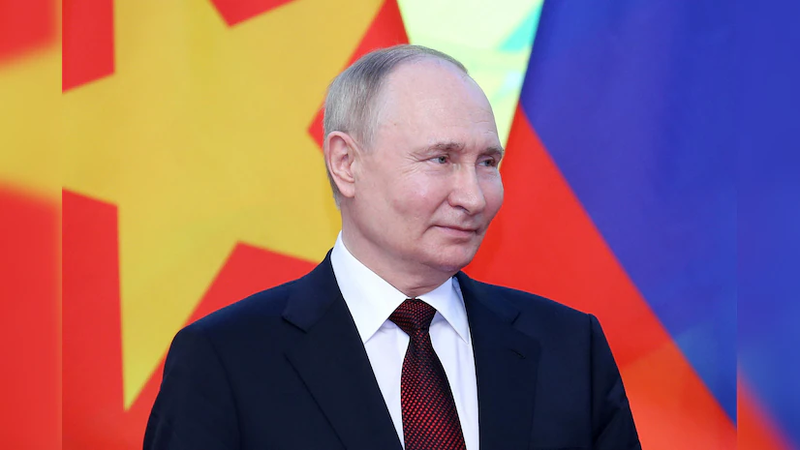
Putin's Triumph and the Perilous Deal with Trump
Vladimir Putin emerges as the most significant beneficiary of this unfolding scenario as Europe endeavors to preserve its relevance. For years, Putin has endeavored to undermine Western unity and establish himself as the exclusive negotiator with Washington. Putin is on the brink of accomplishing this objective as a result of Trump's decision to disregard Europe.
Putin has publicly commended the recent U.S.-Russian negotiations and has expressed his enthusiasm for the prospect of engaging in direct communication with Trump rather than participating in multilateral negotiations. According to Kremlin insiders, Putin is of the opinion that he can negotiate more favorable terms in a one-on-one setting, particularly if Trump prioritizes the acquisition of a "deal" over NATO solidarity.
This development is especially noteworthy in light of the fact that Europe has been Putin's most adamant opponent for an extended period. European nations have united in their opposition to Russian aggression, providing military assistance to Ukraine and implementing sanctions. However, Putin is now in a significantly stronger position than he was previously, as a result of Trump's approach. In the event that Europe is denied an active role in negotiations, it may also encounter difficulties in guaranteeing that any eventual agreement safeguards Ukraine's sovereignty rather than merely halting the conflict in Russia's favor.
Putin is aware that Trump is in possession of the final decision and even though Europe may continue to contend for a seat at the table, it is becoming increasingly evident that Trump has the ultimate say in any potential peace deal. Ultimately, the outcome will be determined by Trump, even if European leaders are able to secure participation in negotiations. This dynamic is directly advantageous to Putin, as the Russian president has consistently endeavored to reduce the influence of multilateral organizations and engage exclusively with individual leaders who may be more amenable to negotiation.
Putin's approach is straightforward: maintain his engagement with Trump, isolate Europe, and guarantee that any agreement reached is advantageous to Russia's long-term interests. The Kremlin is cognizant of the fact that Trump regards diplomacy as transactional, which provides Putin with an opportunity to implement discreet yet significant financial maneuvers to influence the U.S. president's decision-making.
The unspoken reality of financial influence is the final and potentially most alarming aspect of this situation. European analysts are growing increasingly concerned that Putin may exploit economic leverage to ensure that any peace agreement benefits Russia, rather than military strength, in light of Trump's well-documented financial entanglements.
Putin may be able to achieve a settlement that solidifies Russian control over critical regions of Ukraine by offering financial incentives, such as indirect business opportunities, energy agreements, or other economic favors. European officials are concerned that Ukraine's territorial integrity may be jeopardized if Trump perceives a pro-Russian agreement as personally advantageous.
Putin is in a position of great advantage for the first time in years: Europe is in a state of disarray, Trump is in control, and the financial resources to influence the outcome are readily available. With each passing day, it becomes increasingly apparent that the fate of Ukraine—and potentially European security as a whole—may ultimately be in the hands of two men: Vladimir Putin and Donald Trump, rather than in Brussels or Kyiv.




